Argentina is a dream destination, thanks to its ample selection of mountains, glaciers, beaches, wildlife, historic pueblos, and amazing food.
But, while its attractions continue to entice visitors, you might be wondering if the Argentine capital, Buenos Aires, is a safe place to visit – or one you should skip entirely.
Because it is the hub of all air travel getting in and out of the country, Buenos Aires is likely already part of your itinerary. But is it safe to spend a few days there?
The answer is a resounding “Yes!”
Buenos Aires is at once an old-world and cosmopolitan experience. The city is filled with beautiful European architecture, museums, parks, and cafes that will more than serve a couple of days exploring its tree-lined streets.
And, when it comes to safety, like any city around the world, it’s essential to take common-sense precautions; here are our top recommendations for staying safe in the Argentine capital.
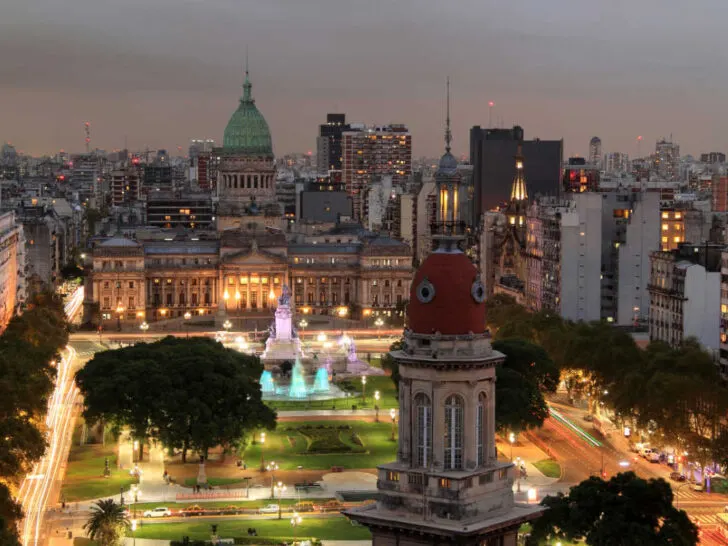
Is Argentina in general safe to visit in 2024?
Argentina’s economy is currently struggling and this has created a wide gap of inequality among its citizens. Therefore, large cities have a high crime rate and petty theft does occur.
That said, Argentina is considered a politically stable country and the Global Peace Index, which ranks countries according to security and safety, designated Argentina as the 54th most peaceful country out of 163 countries worldwide in 2023.
Argentina economy update
The Argentine economy is a huge mess at the moment, with inflation expected to hit 200% this year. Using Argentine pesos can therefore be a nightmare – and mean you lose a lot of money. The blue dollar (an unofficial exchange rate that gives you a better conversion than the official rate) is around, but if you want to avoid carrying lots of cash, you can now pay using your credit card and get an exchange rate similar to the blue dollar rate. You must choose to pay in Argentine pesos (not USD!) to secure this rate.
Both Mastercard and Visa give you what is called the MEP rate, which is almost as good as the blue dollar rate. Mastercard will charge you the official rate but refund you the money a few days later; Visa will charge you the MEP rate from the beginning.
If you do want to have some Argentine pesos for paying in cash (which I highly recommend as you will need them for some restaurants and attractions), it’s best to use Western Union, whereby you send cash to yourself using the Western Union app and then withdraw it in Argentine pesos from one of their branches in Argentina. Bear in mind, those in El Calafate and Ushuaia can run dry of notes, so it can be easiest to do this in Buenos Aires.
Additionally, you can bring USD (unmarked and untorn hundred dollar bills), which you can exchange at “cuevas” (unofficial exchange houses). These will be able to give you the blue dollar rate and any hotel owner will be able to tell you where your nearest one is. Souvenir shops in most parts of the country will be able to give you pesos in exchange for dollar bills – although they might not give you the best rate.
Avoid cash machines. Currently, the maximum withdrawal is the equivalent of $15 USD in Argentine pesos and it will cost you $10 USD in fees.
The chances of tourists being involved in violent crimes, such as armed robbery, are statistically small. As of February 2024, the US State Department declared Argentina a “Level 1: Exercise Normal Precautions”.
For up-to-date travel advisories, or to join the Smart Traveler Enrollment Program, visit the website of the U.S. Department of State’s Bureau of Consular Affairs, or the equivalent agency in your home country.
Because of these high rankings, we added Argentina to our list of South America’s safest countries in 2024.
Planning Your Trip to South America?
Save time, stress & money with a customized travel itinerary planned for you by a South America expert
Key safety considerations for visiting Buenos Aires
Generally, it is very safe to move around the city center and tourist and upscale neighborhoods such as Recoleta, Palermo Hollywood, Palermo Soho. However, as in any city around the world, it’s worth taking the precautions to keep you and your belongings safe.
- Don’t look like a tourist or an easy target. Pay attention to how locals dress, how they carry their possessions, and what they do with their phones. In Buenos Aires, you’ll generally see locals dressed in a chic and conservative manner.
- In Argentina, it is very common for both men and women to wear a cross-body satchel, or fanny-pack across their chest. The purpose of this is to keep their phone and money safe. For additional protection, people zip a jacket up over the bag, or a backpack facing the front – therefore making it impossible for somebody to cut the straps and steal it away. If you don’t have a fanny pack, money belts can also be used.
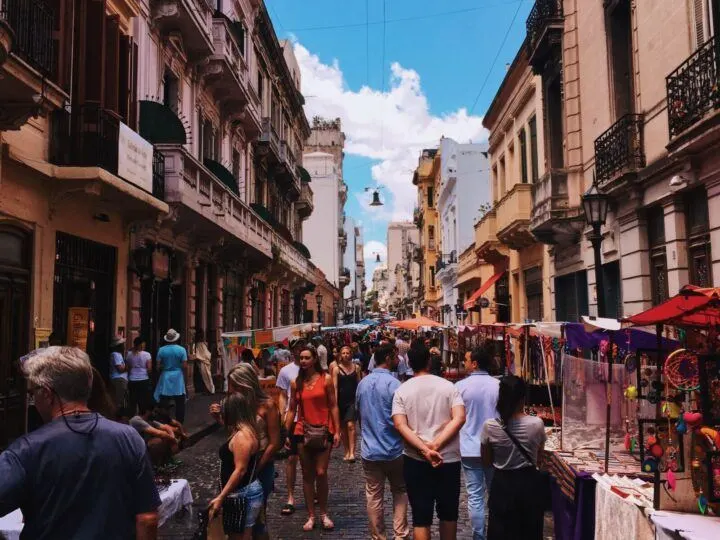
- Smartphones and iPads are expensive in Argentina, so are targets for thieves. It is common for them to be grabbed out of your hand, from your pocket, or off the table at a restaurant. Therefore, don’t look at or use your phone in the street, or on public transportation. Always step into a shop, café, or into a corner where your body can protect it from being grabbed. Never set your phone on the table at a restaurant.
- Don’t wear fancy jewelry like necklaces and watches, or cameras around your neck. These make you an easy target.
- Don’t carry large amounts of cash. Consider stashing small amounts of bills in different places (like zippered pockets or in your shoes) on your body. Consider carrying a “dummy wallet” filled with a few small bills so you can hand it over quickly if forced, leaving you with the bulk of your cash and credit cards in your real wallet.
- Take a photo of your passport. You can then leave this, and other important documents in your hotel rooms. Only carry your debit and credit cards when you know you are going to use them and don’t let credit cards be carried out of your sight when paying at a restaurant or store.
- Stay in popular areas and only walk on well-lit and busy streets. If you need to move between areas – and aren’t sure how safe the places between are – then take a taxi.
- Stay alert and trust your instincts. Decline an offer when something doesn’t feel right and pay attention to your surroundings: people on motorcycles, scooters, skateboards, or the nicely dressed person next to you on the subway can grab your bag and get away.
- If using a taxi, be vigilant to unscrupulous business practices. Negotiate the price ahead of time, or ensure they are using their taxi meter. Alternatively, take an Uber or Cabify.
- Stay away from protests, because they can turn violent. It’s best to not get involved nor remain in the vicinity of any type of protest.
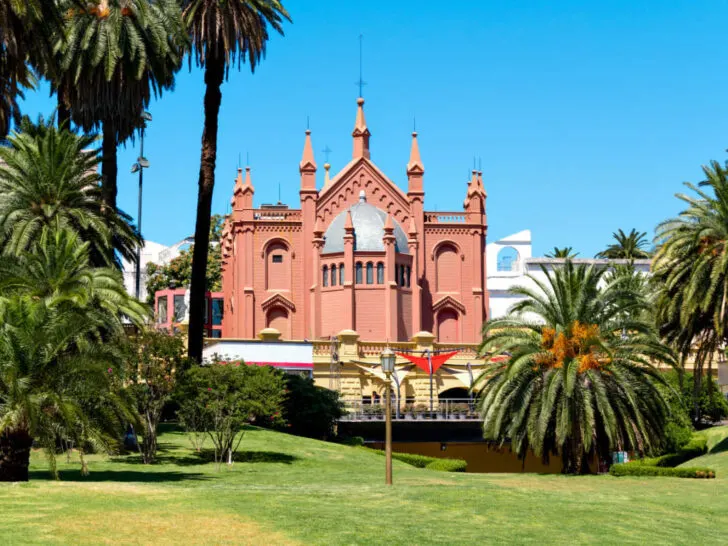
Safety in Buenos Aires FAQs
Common Safety Concerns
Baggage theft and crime
As in any big city around the world, crime does happen in Buenos Aires. Your phone can be swiped from your hand, and your expensive watches and jewelry can be ripped from your body. There are also a number of scams that are common in Buenos Aires:
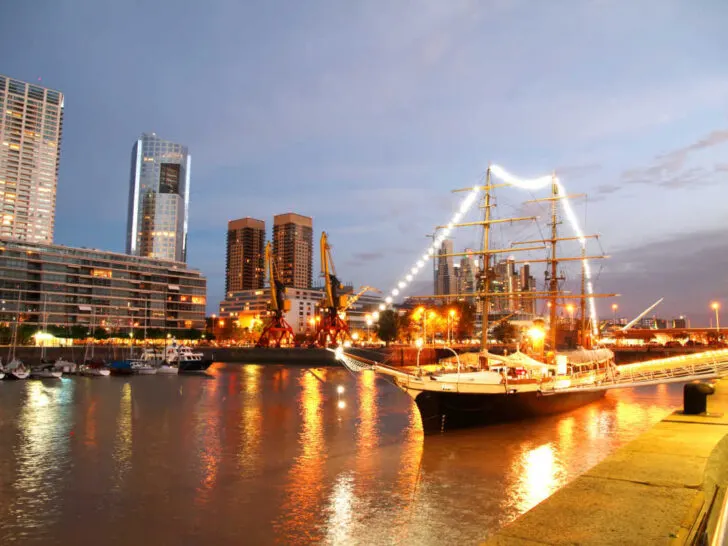
- Two people approach you in tandem, one distracts you, often by spilling something on you, while the other relieves you of your valuables.
- Someone entices you into a bar with a flyer for a shopping discount or free show. Once inside, you may not be allowed to leave until you agree to pay an exorbitant amount for a drink.
- Some people in the street hand out small cards with horoscopes, lottery numbers, or pictures of saints. If you take the card, you are expected to pay for it. It is best practice to never touch a flyer or piece of paper a stranger hands you on the street.
- Taxi drivers and street vendors sometimes pretend to help you review the authenticity of your pesos, then they trade counterfeit bills for good ones. Don’t fall for this.
If someone does try to rob you, don’t resist. Buenos Aires is filled with many street police who can come to your assistance, or at the very least, help you file a report. Most travel insurance does cover theft, so it is important to file a police report and take photos of your surroundings.
Protests
Protests demanding better wages, an improved economy, and human rights do occur in Buenos Aires. They generally occur around the Plaza de Mayo or Congress. They are never targeted at tourists. It is advised to avoid the protests and go about your day.
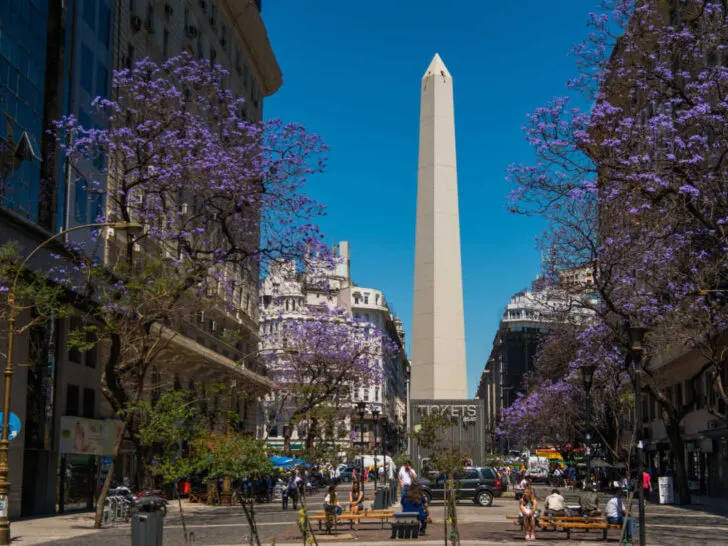
Natural disasters
Buenos Aires is generally a very safe location to live and travel. Heatwaves and high humidity can cause health problems during the summer months of January and February, and the high frequency of rain during these same summer months can cause coastal flooding.
Health considerations
Covid-19
As of August 2022, it is no longer necessary to provide proof of Covid-19 vaccinations upon entering Argentina. However, it is still a good idea to take safety precautions when inside a confined space with large crowds.
Traveler’s diarrhea
Food is generally safe to eat in Buenos Aires. Take normal precautions by washing your hands, and washing your fruit and vegetables well before eating.
Eat at restaurants or food carts that are popular and have good reviews (discover our favorite Buenos Aires restaurants here), and watch how the chefs and servers handle food and money – the latter can be unsanitary.
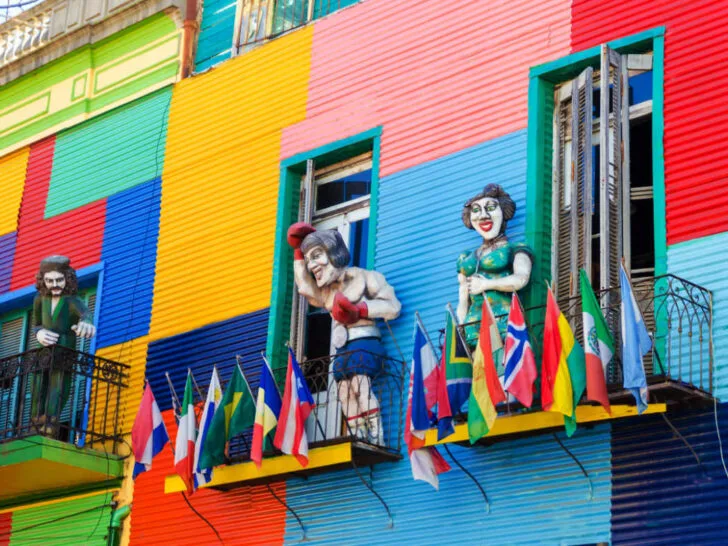
Water is safe to drink in Buenos Aires and throughout most of Argentina. If you are worried, bottled water is commonly available or you can bring a portable water filter.
Food allergies
If you have an allergy to food, make sure you have a list of those ingredients in Spanish to be able to show servers or chefs. Keep in mind, they may not always be familiar with the allergens.
Celiac disease is commonly understood in Buenos Aires and there are many stores and restaurants that offer gluten-free options.
Insect-borne diseases
There is a low risk of vector-borne diseases in Buenos Aires. As of July 2023, the Centers for Disease Control and Protection declared Argentina a “Level 1, Practice Usual Precautions” against mosquito bites and the possibility of Dengue Fever.
Rabies
Argentina is free of rabies from dogs, but rabies can still be contracted from wildlife. The CDC encourages those who are directly working with wildlife in Argentina to have the rabies vaccine.
Ready for your trip to Argentina? Plan your time in Buenos Aires with this expert-written itinerary for Argentina’s capital, check out the most unmissable places to go in Argentina, and plan your trip to southern Argentina and the region of Patagonia.
